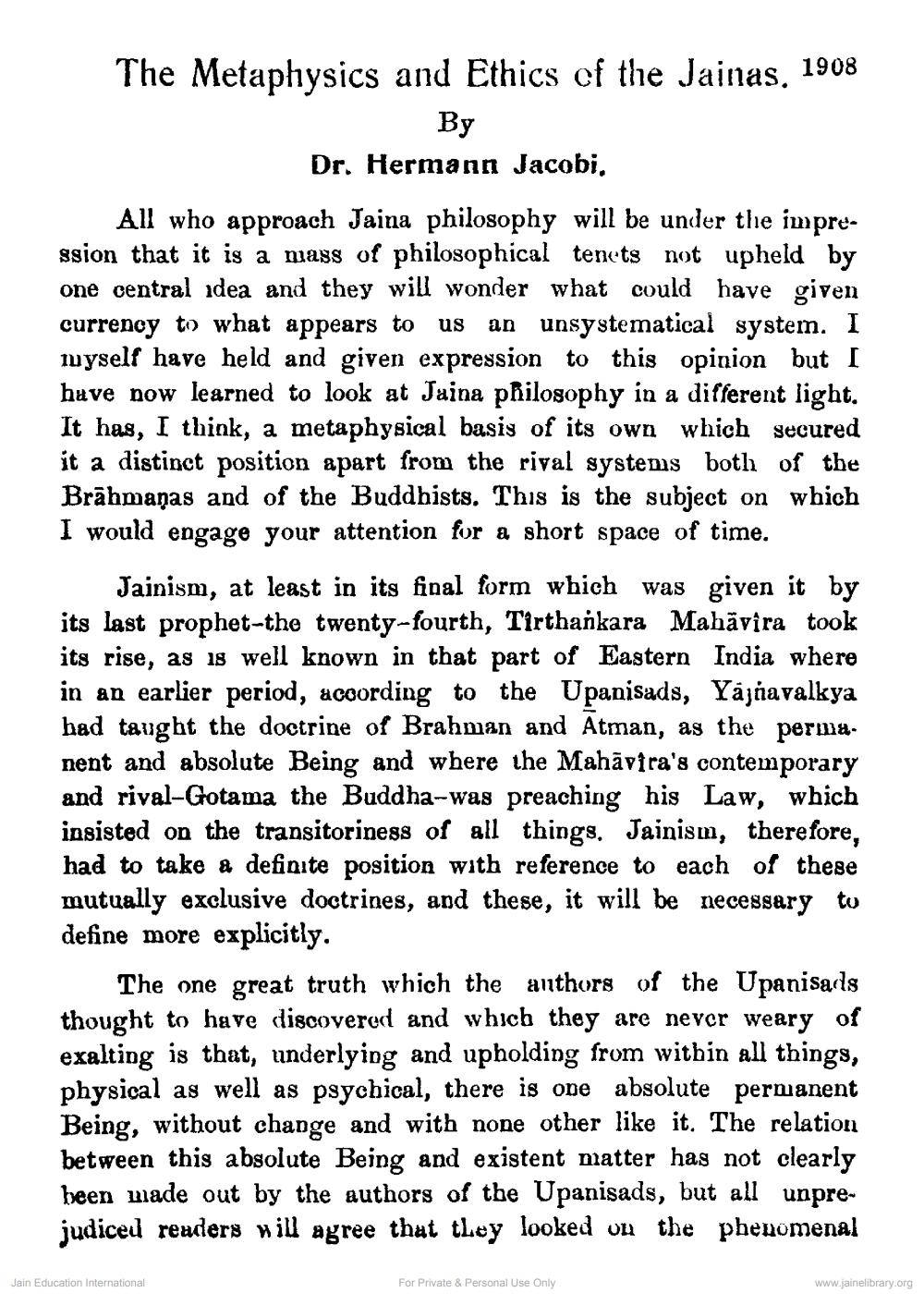________________
The Metaphysics and Ethics of the Jainas. 1908
By
Dr. Hermann Jacobi. All who approach Jaina philosophy will be under the impression that it is a mass of philosophical tenets not upheld by one central idea and they will wonder what could have given currency to what appears to us an unsystematical system. I myself have held and given expression to this opinion but I have now learned to look at Jaina philosophy in a different light. It has, I think, a metaphysical basis of its own which secured it a distinct position apart from the rival systems both of the Brāhmaṇas and of the Buddhists. This is the subject on which I would engage your attention for a short space of time.
Jainism, at least in its final form which was given it by its last prophet-the twenty-fourth, Tirthankara Mahāvira took its rise, as is well known in that part of Eastern India where in an earlier period, acoording to the Upanisads, Yajiavalkya had taught the doctrine of Brahman and Atman, as the perma. nent and absolute Being and where the Mahāvtra's contemporary and rival-Gotama the Buddha-was preaching his Law, which insisted on the transitoriness of all things. Jainism, therefore, had to take a definite position with reference to each of these mutually exclusive doctrines, and these, it will be necessary to define more explicitly.
The one great truth which the authors of the Upanisacs thought to have discovered and which they are never weary of exalting is that, underlying and upholding from within all things, physical as well as psychical, there is one absolute permanent Being, without change and with none other like it. The relation between this absolute Being and existent matter has not clearly been made out by the authors of the Upanisads, but all unprejudiced readers will agree that they looked on the phenomenal
Jain Education International
For Private & Personal Use Only
www.jainelibrary.org




